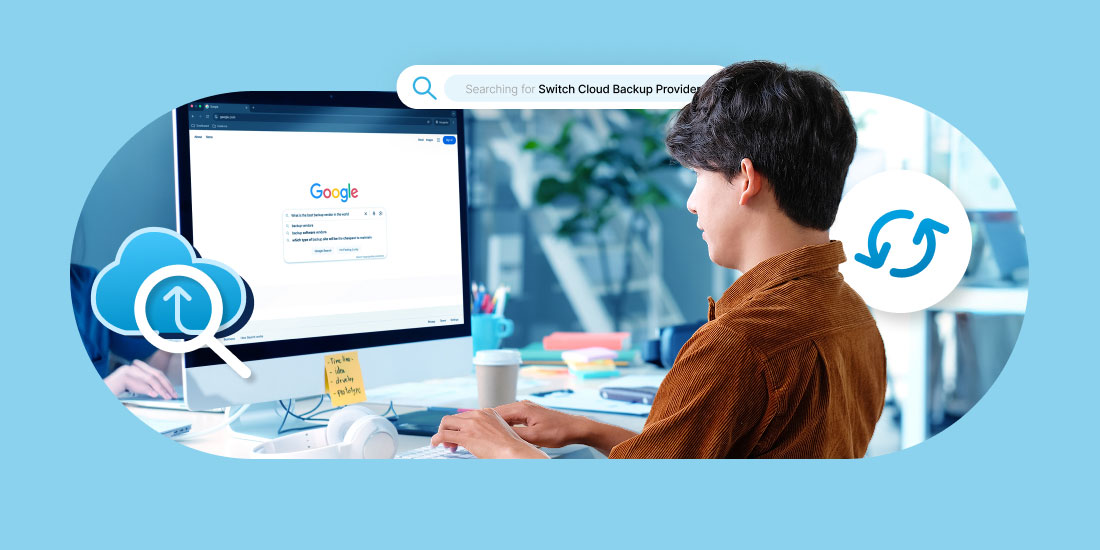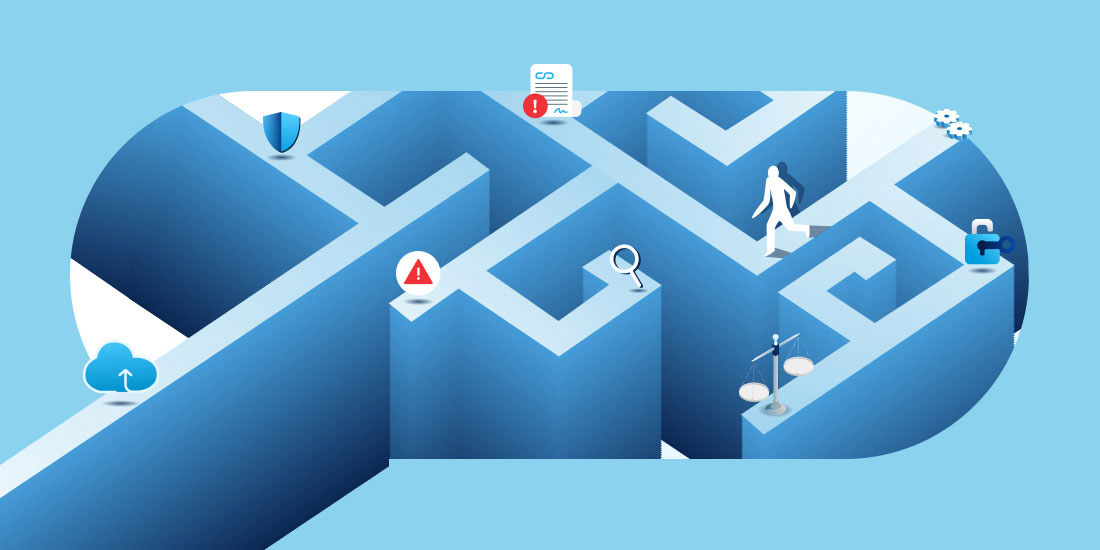Estimated Reading Time: 4 Minutes
Table of Contents
When you think about data protection, you might picture the big disasters — ransomware attacks, hardware failures, major breaches. But in reality, most data loss isn’t sudden or spectacular. It’s gradual, quiet, and entirely preventable. Nowhere is this more visible than inside Microsoft 365.
At first glance, Microsoft 365 feels safe. Emails, files, and collaboration tools live in the cloud. Microsoft offers redundancy and built-in security. It feels untouchable, but look closer, and cracks begin to show. Deleted emails disappear after a retention window. Overwritten contacts and calendars can’t easily be recovered. Microsoft SharePoint and Microsoft OneDrive content can be silently corrupted not only by hackers, but also by accidental user actions or permission changes that no one noticed.
This is where modern data protection begins, not at the point of disaster, but in developing a plan for daily risk. If organizations aren’t proactively backing up OneDrive, SharePoint, emails, contacts, calendars, and even security policy configurations, they aren’t truly protected. And managed service providers (MSPs) who still treat Microsoft 365 backup as optional or “just another line item” risk leaving their clients exposed to operational downtime they can’t afford.
Why Microsoft 365 Backup Is a Wake-Up Call
The rise of Microsoft 365 transformed how businesses operate. But it also revealed a dangerous misconception: moving to the cloud means your data is automatically safe.
Microsoft ensures platform availability, but your clients are responsible for the protection and recoverability of their data. That gap becomes painfully clear after incidents like:
- A critical document being deleted from OneDrive, with no backup version to recover
- SharePoint corruption during a migration or restructuring
- Calendar events or contacts disappearing after admin errors
- Ransomware encrypting files across Microsoft Teams, SharePoint, and OneDrive
Without independent, point-in-time backup, these losses are permanent.
Microsoft 365 is just the beginning. Protecting it well reveals a bigger truth: data protection must evolve with how modern businesses operate. Workflows are decentralized. Data flows across platforms, from customer relationship management (CRM) and accounting systems to team chats and cloud drives. Threats no longer just steal data. They disrupt access, erode trust, and weaponize misconfigurations.
In this landscape, data protection must be:
- Comprehensive: Covering content, configurations, and access controls
- Frequent: Capturing changes multiple times per day
- Fast: Restoring workflows before downtime escalates
- Intelligent: Detecting early signs of risk or failure before they spread

Modern Microsoft 365 backup goes beyond email copying. It’s about enabling operational continuity to protect shared calendars and contacts, recover permissions and collaboration spaces swiftly, and help businesses restore how they work — not just what they lost.
Becoming a Strategic Partner
Cloud-first clients seek more than data protection. They expect business continuity and clear accountability when something goes wrong. That requires moving beyond the traditional mindset of backup as insurance and embracing it as a core pillar of operational resilience.
For MSPs, this shift means evolving from technical vendors into strategic resilience partners. It’s about not just restoring files, but preserving workflows, safeguarding access, and helping clients stay compliant and confident in the face of disruption.
This transition means going from:
- Reactive to proactive: Designing for resilience upfront rather than waiting for failures
- Files to workflows: Acknowledging that data loss disrupts business operations, not just information storage
- Insurance to intelligence: Using backup systems to surface early warnings and risks
- Platform-focused to business-focused: Protecting what matters most, wherever it resides
This switch requires both a mindset change and new capabilities. It’s important to have broad coverage across workloads and user-driven content, along with fast recovery to meet strict service-level agreements (SLAs) and minimize downtime. Such a pivot also benefits from insights and alerts to catch failures, policy changes, or user errors early. It should also include backup and restore functionalities for files and identity infrastructure like Microsoft Entra ID.
Addressing the Cost Conundrum
How MSPs approach backup varies by their business maturity, pricing model, and service strategy. For many, speed and simplicity are key differentiators. The ability to deploy quickly, renew customers faster, and avoid brand-damaging downtime is a competitive edge. Time is money and downtime costs both.
MSPs often grapple with the financial aspects of backup solutions, including:
- Buying backup as needed: This model allows MSPs to scale backup costs based on client demand, typically passing the cost to end customers. It provides short-term cost control and reduces upfront commitments, making it ideal for clients with fluctuating needs or limited budgets. However, without volume-based pricing, it can lead to unpredictable margins and inefficiencies over time.
- Deploying to customers by seat: Per-seat pricing simplifies billing and ensures predictable costs, making it easier to manage and scale as clients grow. This model is particularly suited for compliance-driven clients that require per-user data protection. While it may be harder to sell in cost-sensitive markets, mature MSPs recognize its long-term value for its alignment with user-based protection and streamlined management.
Emerging MSPs often adopt backup reactively to meet client demands or fulfill compliance requirements. Yet they may struggle to justify internal costs or differentiate on value. In contrast, operationally mature MSPs prioritize getting backups online quickly to support SLAs, accelerate renewals, and prevent damage to client trust. These providers aren’t just selling backup: they’re selling resilience.
The MSPs gaining ground today are moving beyond the cost-per-seat mindset. They focus on time to value: How fast can they protect a new client? How strong is their recovery assurance? How confidently can they say, “If anything happens, we’ll get you back online in hours, not days”?
Some are going a step further by standardizing on Microsoft 365 E5 rather than E3 to deliver stronger protection against identity-based attacks out of the box, reducing gaps by design.
Becoming Indispensable in the Age of Risk
The future of managed services isn’t about selling backup as an insurance policy. MSPs need to offer cyber resilience as a service. Clients are more likely to trust the MSPs who understand how modern threats operate, protect their operations, and offer proactive support before crises strike.
Backup will always matter, but the true competitive advantage will belong to MSPs who deliver protection, understand the real cost of disruption, and build client trust before it’s tested.
With broader coverage, faster recovery, and stronger identity protection, Dropsuite is committed to giving MSPs the tools they need to become trusted leaders. Because the question isn’t whether disruption will happen; it’s how ready your clients are — and how ready you are to guide them through it.






